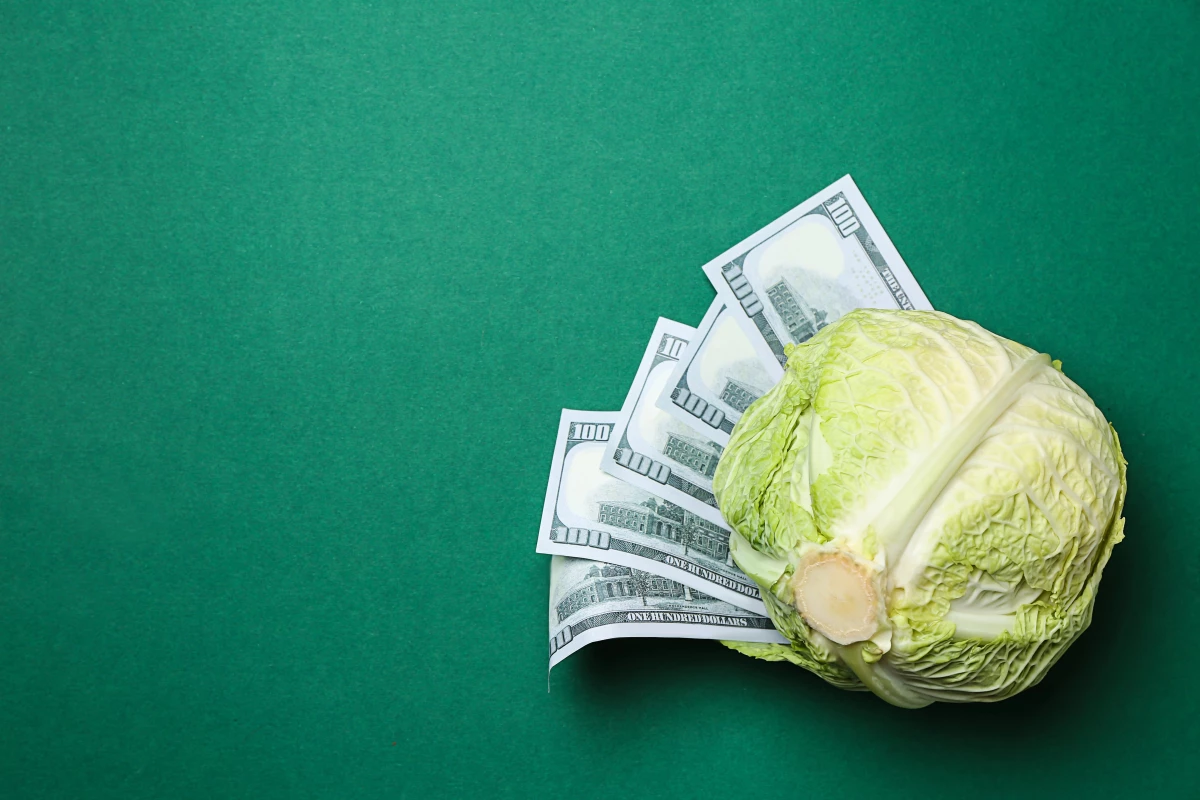Countering the perception that plant-based diets are more expensive, a new study has found that a low-fat vegan lifestyle could slash 19% off your food-shopping bill. While this equates to around US$1.80 per day, that's more than $650 each year, compared to an average American diet that includes meat and dairy.
The debate over the cost of eating only plants is a contentious one, and if you want to dig into the data then you can find recent and varied studies that both affirm this and contest it. But as this excellent 2021 paper from researchers at Oxford University highlights, it's an incredibly hard black-and-white comparison to make, with so many variables: socioeconomic constraints, access, supply chain issues, individual preferences, natural and manmade disasters including H5N1 avian influenza, and many more.
The latest study on diet cost, from medical researchers at the US Physicians Committee for Responsible Medicine, has again made the case for challenging the perception of a "standard" American omnivorous diet, in data collected from a ranzomized crossover trial conducted between February and October 2019 in Washington, DC. The original crossover trial saw 62 overweight adults randomly assigned either the vegan intervention or placed on a typical Mediterranean diet and assessed metabolic health markers for 16 weeks. After that, the participants resumed their usual diets for four weeks, before once again being randomly assigned one of the two diets.
In this secondary analysis, the team didn't just compare the Mediterranean and vegan diets, but used data gathered during week 0 and 20 to have a "standard American" baseline. Participants contributed a three-day dietary record (two weekdays, one weekend) across the trial period, in the aforementioned intervals as well as at week 16 and 36.
The contents of these dietary records were then costed through the US Department of Agriculture (USDA) Thrifty Food Plan, 2021, a database of national grocery prices. Then, two independent reviewers linked listed food prices with the trial data and handled all of the the dietary analysis software.
Ultimately, the researchers found that total food cost went down 19% for those on the vegan diet, or a mean of $1.80 per day of savings. There was no significant change for those who switched from a general American omnivorous diet to the Mediterranean diet, though the data suggests a mean increase of 60c per day (around 6% more costly).
And, head to head, the Mediterranean diet was 25% more expensive than the vegan diet, with a mean of $2.40 per day between them.
“As the cost of groceries remains stubbornly high, consumers should swap the meat and dairy products for a low-fat vegan diet based on fruits, vegetables, grains, and beans to possibly save more than $650 a year on their grocery bill, compared with a standard American diet, and more than $870, compared with the Mediterranean diet,” said lead author Hana Kahleova, MD, PhD. “A vegan diet won’t just save money; it could save lives by helping to avoid or improve conditions like obesity, type 2 diabetes, and heart disease.”
However, as expected, the cost of meat and other animal products accounted for most of the cost. In the vegan cohort, the additional money spent on fruit and vegetables was negated by the huge savings on meat, dairy and added fats. Overall, omitting meat saved around $2.90 per day, while cutting out dairy and added fats each saved about 50c per day.
The vegans spent 50c more per day on vegetables, 30c more on grains and 50c more on meat alternatives.
It's worth pointing out that the Physicians Committee for Responsible Medicine – made up of more than 17,000 doctors across the globe – are a nonprofit advocacy group "dedicated to saving and improving human and animal lives through plant-based diets and ethical and effective scientific research." And Kahleova was involved in the original 2019 study, from which this secondary analysis stems.
However, the rising cost of many foods is very clear. According to the USDA's Food Price Outlook for 2024-2025, the price of eggs rose 10% in September, making them 39.6% higher than 12 months earlier. This was largely due to the impact of 2022's avian influenza outbreak that continues to hamper the supply chain. Fats and oils are predicted to rise by 2.9% across 2024, with the cost of butter alone having increased 7.8% from September 2023 to 2024. Beef and pork have both become more expensive this year, with beef and veal increasing in cost seven months in a row. In September 2024, beef prices were 4.2% higher than 12 months earlier, and are expected to finish the year 5.5% more expensive.
Meanwhile, prices for fresh fruit is only expected to creep up 0.1% for 2024, while cereal and bakery products are expected to see a minimal increase of 0.5%.
The study was published in the journal JAMA Network Open.





